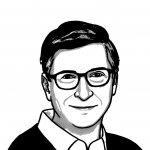People who require healthcare services are no longer needed to go to hospitals or general practitioner offices, where they would be required to wait in line until a physician becomes available.
NOOSi, a new health tech start-up based in Cape Town, is now offering a comprehensive range of in-home healthcare services geared toward meeting patients’ requirements at every stage of their lives.
The Noosi gives people access to counselling, care for and management of chronic diseases, and mental and psychiatric care. Patients can cross-reference their health needs with a list of nearby professionals who have signed up on the platform.
South Africa is in the middle of a healthcare crisis caused by a severe lack of medical resources and staff and poor job prospects for nurses working in both the public and private sectors.
This affects the health of both patients and healthcare workers. This leads to longer wait times, less effective hygiene and infection control measures, and an overall decrease in the quality of care that can be provided to patients in public healthcare facilities. As a direct consequence, increased pressure has been placed on the private sector to make up for the shortfall.
On the other hand, patients think private facilities are too expensive for routine care, partly because of problems with overtreatment. In the meantime, the fact that the private sector is driven by a desire to maximize profits means that the medical professionals who work in these facilities are frequently overworked and underpaid.
As a result, many workers, particularly nurses, are required to work additional jobs to make ends meet, which can lead to exhaustion on both the physical and mental fronts.
A new health technology platform has been introduced to address these interrelated problems and improve the health and well-being of patients as well as the healthcare professionals who treat them.
NOOSi was started by the head of the UCT Tech4Good Lab, Dr Sumarie Roodt, and a nurse with more than 30 years of experience, Sister Catherine Williams. NOOSi promotes high-quality and compassionate care for its users, who can use the platform to access a wide range of at-home healthcare services that meet the needs of patients throughout their lives.
This includes counseling, care, and management for chronic diseases and mental and psychiatric care. Patients can cross-reference their healthcare needs against a list of nearby professionals registered on the platform.
Digitally-enabled healthcare at home has become a popular option for people who need care. This is partly because of the Covid-19 pandemic regulations, which made it harder for people to get to hospitals and drove people to use telemedicine solutions.
This is backed up by research that shows, with the rise of non-communicable diseases and the need for long-term and post-acute care that comes with them, personalized environments like the home speed up recovery times by making patients less likely to get hurt or sick in the hospital and by letting them keep their routines, keep busy with small tasks, and enjoy the comforts of home, like family, pets, hobbies, and the outdoors.
Roodt says, “NOOSi was started because we wanted to revitalize the South African healthcare system. We believe that this can be done by using a “tech4good” approach in a way that gives hardworking nurses new and better job opportunities and gives patients a way to get affordable and accessible healthcare.”
Roodt also notes that the company has received several inquiries from prospective investors as a result of its purpose-driven mission, which resulted in NOOSi’s first raise, which was an undisclosed pre-seed investment made earlier this year by Anton Musgrave, Partner at Futureworld International, and Vanessa September, CEO of the Constitution Hill Trust.
In regard to this, Musgrave explains that: “As a veteran entrepreneur and seasoned start-up angel investor, the NOOSi vision has exponential growth potential. This is true because healthcare has become a prominent global issue.”We’ve seen a lot of growth in projects that put the public’s health first, and the home-based healthcare market is a great example. The global home healthcare market is expected to be worth USD 634.9 billion by 2030, which means there are many growth opportunities. This is why I decided to invest in such a great project.
The investment into NOOSi also comes at a time when the health technology industry in Africa has seen remarkable growth over the last few years. More than forty health technology start-ups on the African continent were awarded series A funding in 2020 alone.
This pattern is anticipated to continue as governments across the continent recommit themselves to achieving health-based outcomes outlined in the Sustainable Development Goals of the United Nations as well as the roadmap for the African Union’s Agenda 2063.
September adds to this by saying, “Around the world, people realize that to realize everyone’s right to good health, we need to develop patient-centered interventions and approaches that make sure healthcare services are in line with patient needs.”I was very interested in contributing my support as an investment when I learned about this initiative, its goal to empower healthcare workers and those who require care, and the fact that an all-women team drove it.
To make it easier for people to get high-quality, low-cost health care, NOOSi will first limit its platform to the Cape Town Metropole. Before the new year, they plan to grow into more South African provinces, and in the medium to long term, they want to do business worldwide.



